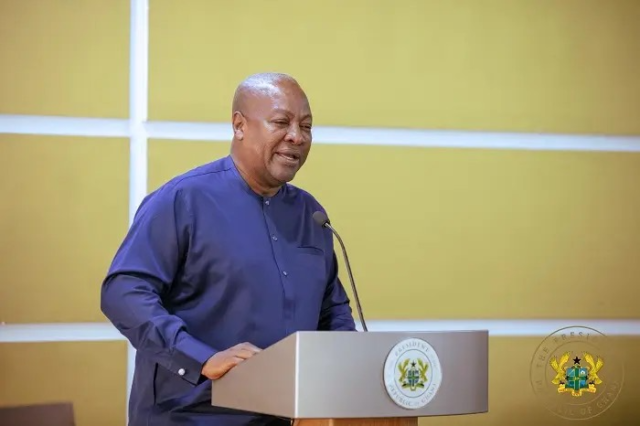President John Dramani Mahama has officially lifted the temporary ban on state land transactions, which had been in effect since January 10, 2025.
The suspension was initially introduced to allow for a comprehensive assessment of Ghana’s land administration system.
Speaking at the swearing-in of the newly reconstituted National Lands Commission on Tuesday, September 2, President Mahama revealed that the review had uncovered major deficiencies in the existing system, highlighting the need for urgent reforms.
“The suspension provided critical insights into the structural weaknesses of our land governance framework and the pressing need for change,” he noted. “With the inauguration of this new commission and the introduction of stronger accountability measures, I am pleased to announce that the ban on land transactions is now lifted.”
The President made it clear, however, that this move does not signify a return to old practices. He emphasized that going forward, all allocations, leases, or sales of public land must adhere to strict transparency protocols, incorporate digital verification tools, and fall under enhanced oversight mechanisms.
“This is not a return to business as usual. It is the start of a more disciplined and accountable approach to managing public lands,” he said.
President Mahama outlined four key pillars guiding the government’s renewed land sector agenda:
- Restoring public trust through fairness, transparency, and justice in land administration.
- Cracking down on unlawful land deals by recovering encroached lands and protecting public property.
- Digitising and modernising land services, making them more efficient, accessible, and decentralised.
- Integrating customary and statutory land systems to ensure equity and consistency across the board.
The lifting of the ban signals the beginning of a broader effort to overhaul land governance in Ghana, with the aim of ensuring long-term sustainability, accountability, and equitable access.








